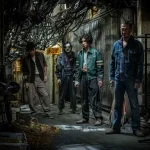“Starship Troopers” (1997) is a military science fiction film directed by Paul Verhoeven, based on the 1959 novel by Robert A. Heinlein.
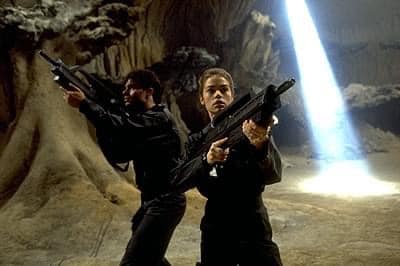
“Starship Troopers” (1997) is a bold and satirical military science fiction film directed by Paul Verhoeven, known for his distinctive style and social commentary. Based loosely on the 1959 novel by Robert A. Heinlein, the film explores themes of militarism, propaganda, and the nature of fascism in a futuristic society locked in a brutal war against insectoid aliens known as Arachnids, or simply “Bugs.”
Set in a future where Earth is governed by a militaristic federation, “Starship Troopers” follows a group of young recruits, including Johnny Rico (played by Casper Van Dien), Carmen Ibanez (Denise Richards), and Dizzy Flores (Dina Meyer), as they enlist in the Mobile Infantry to fight the Bugs on distant planets. The film’s narrative unfolds against the backdrop of relentless warfare and the propaganda machine that glorifies military service as the ultimate duty and honor.
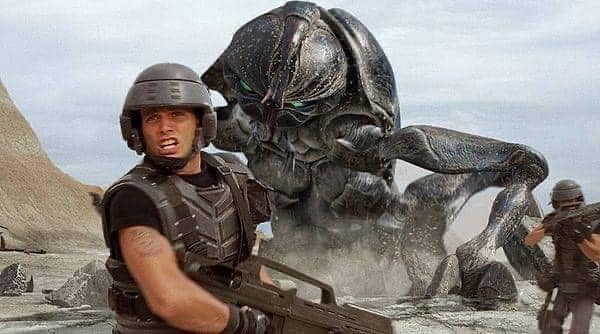
“Starship Troopers” (1997) is a bold and satirical military science fiction film directed by Paul Verhoeven, known for his distinctive style and social commentary. Based loosely on the 1959 novel by Robert A. Heinlein, the film explores themes of militarism, propaganda, and the nature of fascism in a futuristic society locked in a brutal war against insectoid aliens known as Arachnids, or simply “Bugs.”
Set in a future where Earth is governed by a militaristic federation, “Starship Troopers” follows a group of young recruits, including Johnny Rico (played by Casper Van Dien), Carmen Ibanez (Denise Richards), and Dizzy Flores (Dina Meyer), as they enlist in the Mobile Infantry to fight the Bugs on distant planets. The film’s narrative unfolds against the backdrop of relentless warfare and the propaganda machine that glorifies military service as the ultimate duty and honor.
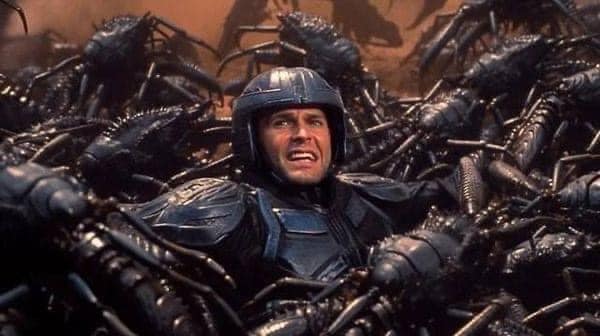
Verhoeven’s direction infuses “Starship Troopers” with his trademark blend of dark humor, over-the-top action sequences, and biting satire. The film subverts traditional tropes of heroism and nationalism, presenting a dystopian vision where military service is mandatory and dissent is suppressed. Through exaggerated propaganda videos and newsreels interspersed throughout the film, Verhoeven critiques the glorification of war and the dehumanization of the enemy.
Visually, “Starship Troopers” is a spectacle of futuristic technology and epic battles, with groundbreaking special effects depicting large-scale interstellar warfare against the formidable Arachnids. The Bugs themselves are portrayed with grotesque realism, emphasizing their alien and relentless nature as the primary antagonists threatening humanity’s survival.
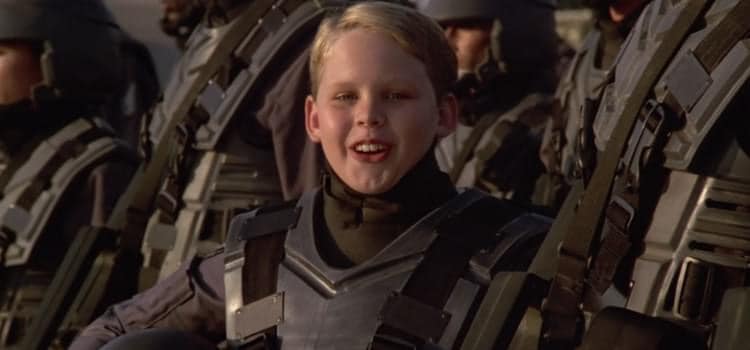
The film’s cast delivers performances that balance earnestness with a hint of satire, embodying characters who are both idealistic soldiers and products of their indoctrinated society. Casper Van Dien’s portrayal of Johnny Rico, in particular, captures the journey from wide-eyed recruit to seasoned warrior grappling with the moral complexities of war.
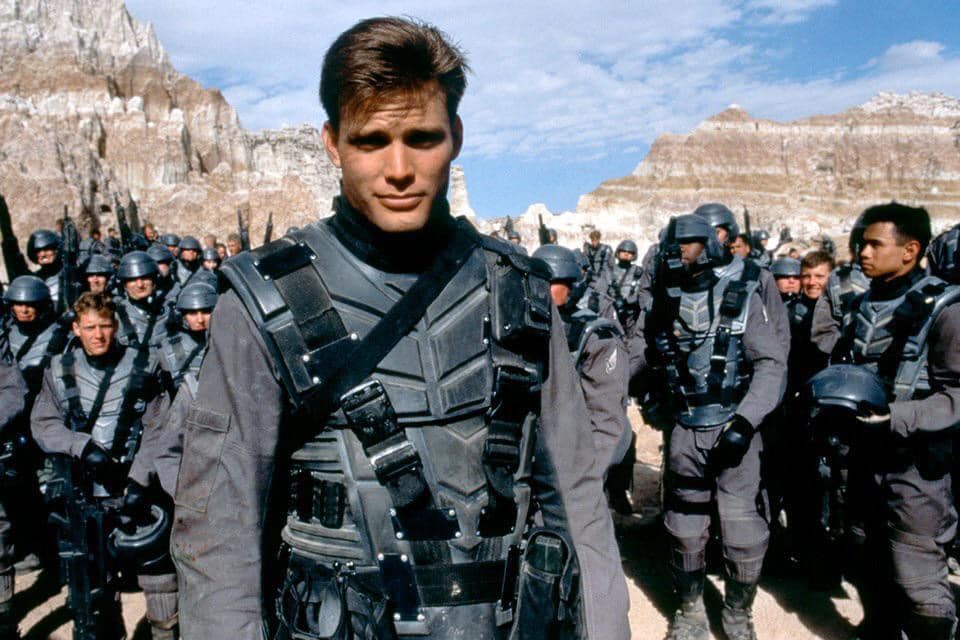
While divisive upon its release, “Starship Troopers” has since garnered a cult following and critical reappraisal for its bold approach to sci-fi storytelling and its provocative exploration of political and social themes. Its legacy extends beyond the genre of military science fiction, influencing discussions on the role of media, propaganda, and authoritarianism in contemporary society.
As a cinematic adaptation of Robert A. Heinlein’s novel, “Starship Troopers” diverges significantly in tone and intent, emphasizing Verhoeven’s distinct vision while retaining certain thematic elements from the source material. It remains a thought-provoking and visually stunning entry in the realm of science fiction cinema, challenging audiences to reconsider the consequences of unchecked militarism and the allure of war.








